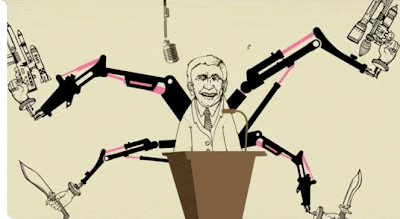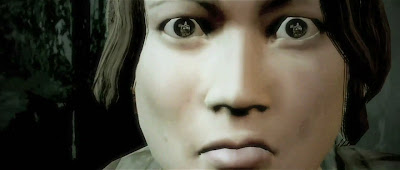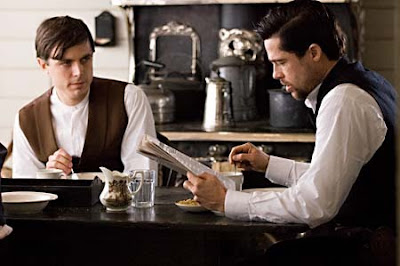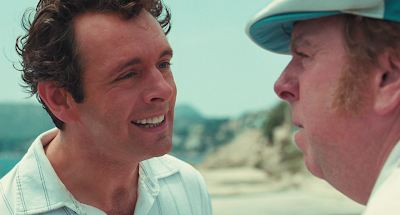
Featuring the voice talents of:
Hiccup: Jay Baruchel
Stoik: Gerard Butler
Gobber: Craig Ferguson
Astrid: America Ferrera
Snotlout: Jonah Hill
Fishlegs: Christopher Mintz-Plasse
Tuffnut: T.J. Miller
Ruffnut: Kristen Wiig
DreamWorks Animation and Paramount Pictures present a film directed by Dean DeBlois and Chris Sanders. Written by Adam F. Goldberg & Peter Tolan and DeBlois & Sanders. Based on the book by Cressida Cowell. Running time: 98 min. Rated PG (for sequences of intense action and some scary images, and brief mild language).
It strikes me that there is a plethora of sources out there in this day and age for children’s literature inspired movies. Perhaps this was always the case; but it seems that the first generation to be exposed to films with the technology to fully explore fantasy universes may now be responsible for an explosion of fantasy children’s books. This in turn has led to a bevy of new films based on those books.
“How to Train Your Dragon” is the latest CGI conjuration to come from recent popular children’s literature. British author Cressida Cowell created the series of books “translated from Old Norse” supposedly written by a young Viking named Hiccup Horrendous Haddock III. Hiccup is the hero of these books, which began with his first heroic acts in “How to Train Your Dragon”.
In the story Hiccup is not your average Viking. He’s not big and burly. He has no penchant for killing dragons, which raid his seaside village on a nightly basis. Although, Hiccup’s father (Gerard Butler, “300”) is the leader of his clan, no one has much respect for Hiccup, his father included. This is because when Hiccup tries to help in fending off the dragons, he usually ends up burning down a greater portion of the village than the dragon’s breath.
But, Hiccup wants to contribute. He’s an inventor. During a dragon attack one night, he tests one of his inventions on what he thinks is the mysteriously, elusive dragon known as the Night Fury. To his surprise, the trap works; but when he goes to kill the wounded dragon, Hiccup finds he can’t. Instead he befriends the dragon, naming him Toothless; because the dragon is able to retract his teeth, making his mouth all gums. Hiccup finds the Vikings don’t really understand the dragons at all.
Jay Baruchel (“Tropic Thunder”) provides the voice of Hiccup, both in dialogue and through narration. Baruchel is a surprisingly strong choice for the vocal role. His narration is done with impeccable inflection and gets the audience acutely involved in his tale. His dialogue is filled with the awkwardness that must come from experience as an outsider. His work here goes a long way toward selling the fantasy of this Viking world as if dragons and the terror they bring with them are as much a way of life as lockers and text books are to real teenagers.
Of course, Hiccup cannot let his Viking clan know of his friendship with a dragon. He must also prove himself during dragon survival school. He uses his new found knowledge of dragons to rise to the top of his class while never hurting a dragon. The only problem—the head of the class gets the first kill. What will Hiccup do?
There isn’t really a lot of new material here. You’ve got your typical outsider teen hero who must find his place in the world before he can be of any use to himself or society as a whole. That society doesn’t understand said hero, but ultimately all works itself out. Pretty standard animated fare; but it is done very well here by veteran Disney helmers Chris Sanders and Dean DeBlois (the team who brought us “Lilo & Stitch”). The animation, done with superb quality, had me marveling at the detail of its wizardry.
I can’t find much to knock about “How to Train Your Dragon”, and I don’t really want to. It’s an enjoyable showcase of beautiful CGI animation and fun family action. For all it lacks in originality, it makes up for with charm, whit and its extremely likable lead. The dragons are awesomely rendered, and I liked that the filmmakers resisted the temptation to make them more than mere animals. “How to Train Your Dragon” is everything it should be, nothing more, nothing less.
Hiccup: Jay Baruchel
Stoik: Gerard Butler
Gobber: Craig Ferguson
Astrid: America Ferrera
Snotlout: Jonah Hill
Fishlegs: Christopher Mintz-Plasse
Tuffnut: T.J. Miller
Ruffnut: Kristen Wiig
DreamWorks Animation and Paramount Pictures present a film directed by Dean DeBlois and Chris Sanders. Written by Adam F. Goldberg & Peter Tolan and DeBlois & Sanders. Based on the book by Cressida Cowell. Running time: 98 min. Rated PG (for sequences of intense action and some scary images, and brief mild language).
It strikes me that there is a plethora of sources out there in this day and age for children’s literature inspired movies. Perhaps this was always the case; but it seems that the first generation to be exposed to films with the technology to fully explore fantasy universes may now be responsible for an explosion of fantasy children’s books. This in turn has led to a bevy of new films based on those books.
“How to Train Your Dragon” is the latest CGI conjuration to come from recent popular children’s literature. British author Cressida Cowell created the series of books “translated from Old Norse” supposedly written by a young Viking named Hiccup Horrendous Haddock III. Hiccup is the hero of these books, which began with his first heroic acts in “How to Train Your Dragon”.
In the story Hiccup is not your average Viking. He’s not big and burly. He has no penchant for killing dragons, which raid his seaside village on a nightly basis. Although, Hiccup’s father (Gerard Butler, “300”) is the leader of his clan, no one has much respect for Hiccup, his father included. This is because when Hiccup tries to help in fending off the dragons, he usually ends up burning down a greater portion of the village than the dragon’s breath.
But, Hiccup wants to contribute. He’s an inventor. During a dragon attack one night, he tests one of his inventions on what he thinks is the mysteriously, elusive dragon known as the Night Fury. To his surprise, the trap works; but when he goes to kill the wounded dragon, Hiccup finds he can’t. Instead he befriends the dragon, naming him Toothless; because the dragon is able to retract his teeth, making his mouth all gums. Hiccup finds the Vikings don’t really understand the dragons at all.
Jay Baruchel (“Tropic Thunder”) provides the voice of Hiccup, both in dialogue and through narration. Baruchel is a surprisingly strong choice for the vocal role. His narration is done with impeccable inflection and gets the audience acutely involved in his tale. His dialogue is filled with the awkwardness that must come from experience as an outsider. His work here goes a long way toward selling the fantasy of this Viking world as if dragons and the terror they bring with them are as much a way of life as lockers and text books are to real teenagers.
Of course, Hiccup cannot let his Viking clan know of his friendship with a dragon. He must also prove himself during dragon survival school. He uses his new found knowledge of dragons to rise to the top of his class while never hurting a dragon. The only problem—the head of the class gets the first kill. What will Hiccup do?
There isn’t really a lot of new material here. You’ve got your typical outsider teen hero who must find his place in the world before he can be of any use to himself or society as a whole. That society doesn’t understand said hero, but ultimately all works itself out. Pretty standard animated fare; but it is done very well here by veteran Disney helmers Chris Sanders and Dean DeBlois (the team who brought us “Lilo & Stitch”). The animation, done with superb quality, had me marveling at the detail of its wizardry.
I can’t find much to knock about “How to Train Your Dragon”, and I don’t really want to. It’s an enjoyable showcase of beautiful CGI animation and fun family action. For all it lacks in originality, it makes up for with charm, whit and its extremely likable lead. The dragons are awesomely rendered, and I liked that the filmmakers resisted the temptation to make them more than mere animals. “How to Train Your Dragon” is everything it should be, nothing more, nothing less.


.jpg)































